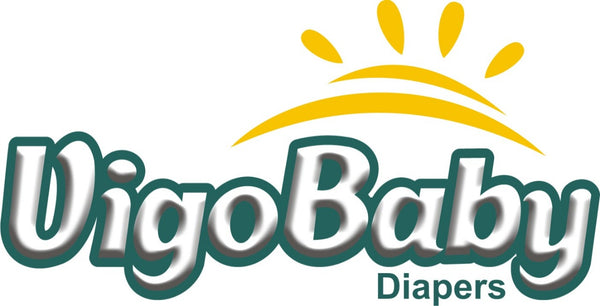As parents, we're always looking for ways to provide the best for our little ones. While keeping our babies comfortable and clean, many of us are also mindful of the environmental impact of diapering.
Disposable diapers are convenient but contribute significantly to landfill waste. Fortunately, there are many ways to minimize your environmental footprint when it comes to diapering.
Let’s explore how to reduce diaper waste while still keeping your baby happy and dry.
The Environmental Impact of Diapering
It's no secret that diapers, especially disposables, can have a lasting impact on the environment.
According to estimates, a baby goes through around 2,500 to 3,000 diapers in their first year alone.
When you consider the millions of babies worldwide, that adds up to a staggering amount of waste. But the good news is that parents have several ways to make diapering more eco-friendly.
1. Choose Compostable Diapers
One of the most effective ways to reduce diaper waste is by choosing compostable diapers.
Unlike traditional disposables, which can take up to 500 years to decompose, compostable diapers break down much more quickly under the right conditions.
These diapers are made from plant-based materials that are designed to biodegrade. While some diapers can be composted at home, others need to be sent to industrial composting facilities.
Key Tip: Check with local composting programs to see if they accept compostable diapers, or explore companies that offer compostable diapers.
2. Cloth Diapering at Home
Cloth diapers are the classic go-to for parents looking to reduce their environmental impact.
Unlike disposables, cloth diapers can be reused hundreds of times, cutting down on waste. Also, modern cloth diapers are far easier to use, with convenient snaps, adjustable sizes, and absorbent inserts.
Additionally, many cloth diaper brands offer organic and sustainable fabrics, making this option even more eco-friendly.
Key Tip: Invest in enough cloth diapers to make washing less frequent, and air-dry them whenever possible to save energy.
3. Diaper Recycling
Diaper recycling is another emerging option for eco-friendly diapering. Some companies and local programs now offer ways to recycle disposable diapers.
These programs collect used diapers and process them to extract valuable materials like plastics and fibers, which can be reused in other products.
Though recycling disposable diapers is not yet widespread, it's worth checking if any programs are available in your area.
Key Tip: Sign up for a diaper recycling program if one is available in your city, and be sure to follow the specific guidelines for disposal.
4. Reduce Diaper Usage with Potty Training
Another practical way to reduce diaper waste is by starting potty training early.
While the timing of potty training varies from child to child, encouraging your toddler to use the potty as soon as they're ready can cut down on the number of diapers you use.
There are also cloth training pants available, which provide an eco-friendly alternative to disposable training pants. These are reusable, washable, and help reduce the environmental footprint of transitioning out of diapers.
Key Tip: Keep an eye out for signs that your child is ready for potty training, and take a gradual approach to make the process smooth for both you and your toddler.
5. Be Mindful of Diaper Packaging
It’s not just the diapers themselves that contribute to waste, packaging materials can also add up. Many diaper brands now offer eco-friendly packaging made from recycled or recyclable materials.
When purchasing diapers, look for brands that prioritize sustainable packaging to further reduce your environmental footprint.
You can also reduce waste by buying diapers in bulk. This cuts down on the amount of packaging and the frequency of shopping trips, both of which can help minimize your overall waste.
To Sum Up: Dispose Carefully
In short, the most important step you can take to reduce waste is to dispose of the diapers mindfully.
- Compost When Possible: If you're using compostable diapers, make sure they end up in the right place. Check if your local composting facilities accept diapers.
- Diaper Recycling: Look for programs that collect used diapers and repurpose the materials to reduce waste.
- Use Eco-Friendly Diaper Disposal Bags: If you're using disposables and don’t have access to recycling or composting facilities, opt for biodegradable diaper disposal bags. These break down faster than regular plastic bags.
By taking these small but impactful steps, you can ensure that your diapering habits contribute to a greener planet.
Ready to Make a Change?
Discover how Vigo Diapers can help you on your eco-friendly diapering journey. Explore our sustainable diapers and make a positive impact on the environment—one diaper at a time.

